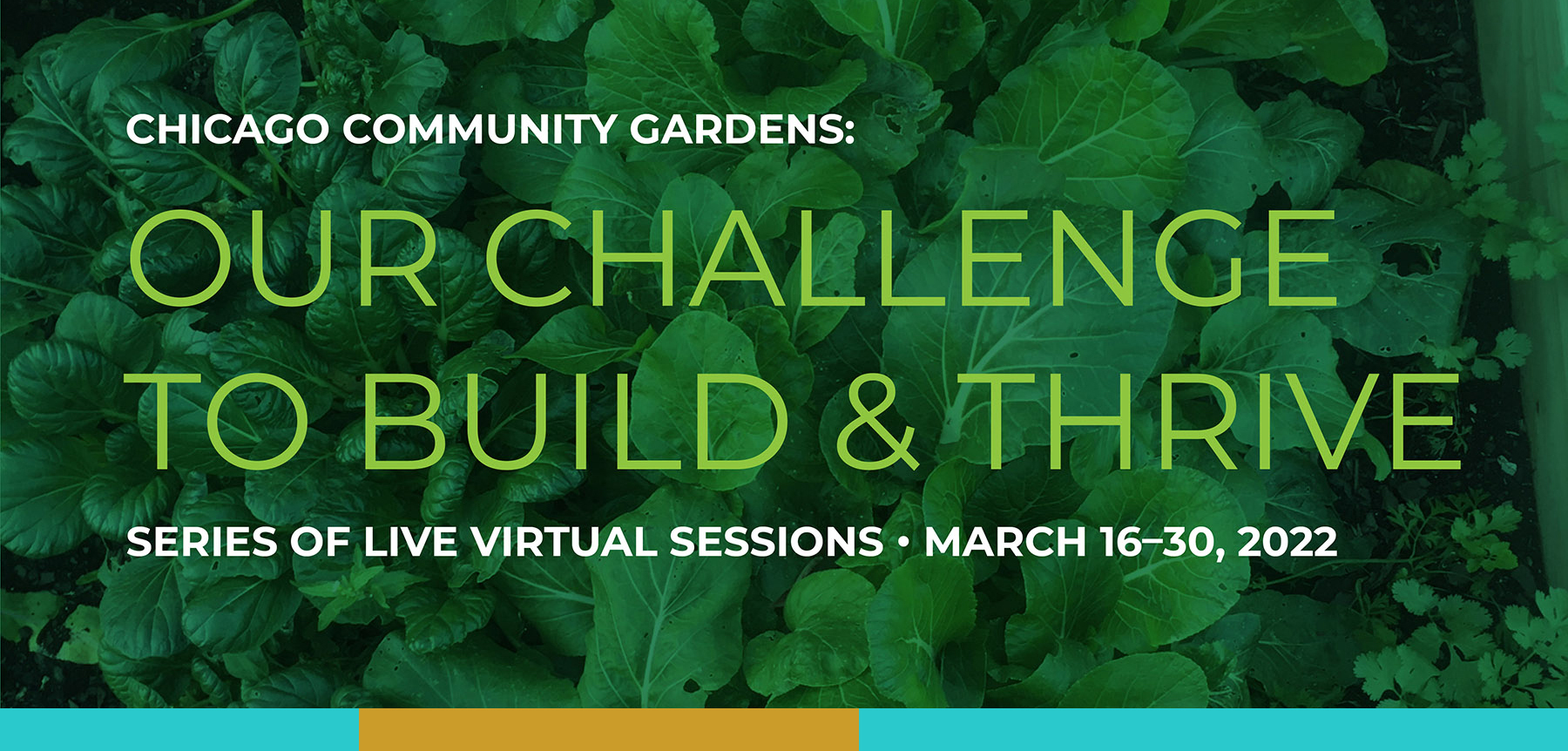Many thanks to everyone who was a part of this year’s event! Recordings of all of the conference presentations can be found HERE
Over the last two years, community gardens and farms have risen to the challenges we’ve faced and have had a profound impact on the health and well-being of our neighborhoods. Gardens have flourished and have continued to serve as vital resources in our communities for good nutrition, physical activity, social connections, and environmental stewardship. How is community gardening evolving in Chicago? What have we learned and how do we ensure thriving community gardens for Chicago’s future?
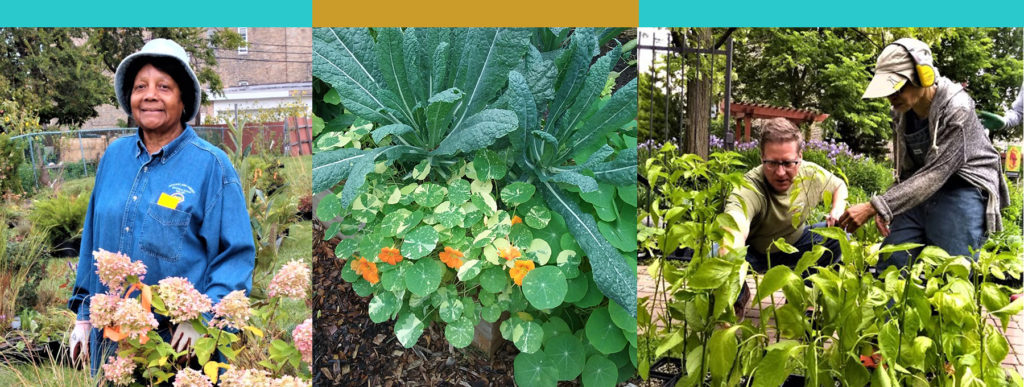
Our slate of talented and amazing presenters will create spaces to explore these questions together and share ideas as well as provide actions we can all take. This year’s conference sessions highlight impactful projects in our region that are focused on increasing biodiversity and climate resiliency. You’ll gain powerful tools to increase soil fertility and safety, and learn techniques to help your community garden thrive. You can also join conversations about growing and preserving community spaces through challenges, sharing knowledge, and innovative food access solutions.
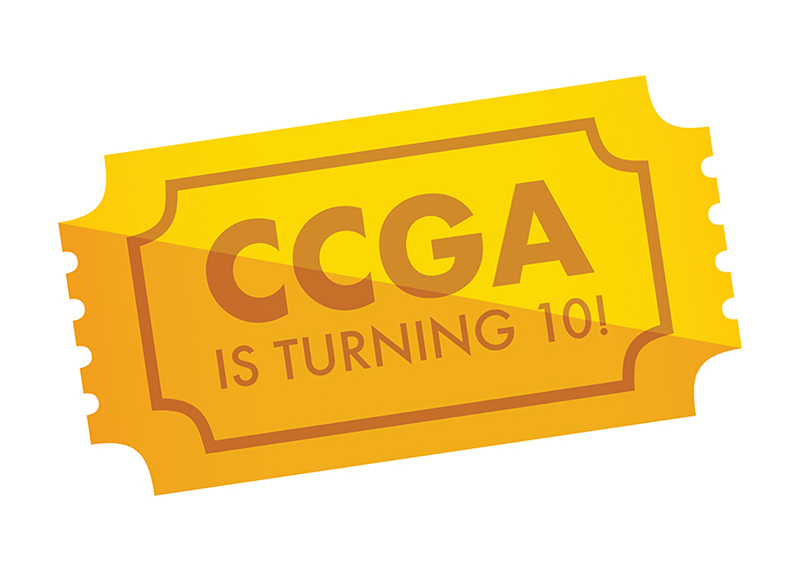
CCGA is Turning 10!
Mark your calendars. We’re planning a party for the ages August 19, 2022 at the Garfield Park Conservatory and you and your family are invited! Join fellow gardeners for music, food, and family fun where we can all celebrate the abundance of our gardens and each other under the evening sun.
Your conference ticket also includes admission to the celebration!
Quick Links
General Info & Registration
Conference registration includes access to the whole series of 10 virtual sessions, which will be presented live on March 16, 19, 23, 26 and 30 (see the schedule below for details.) Recordings of all presentations will also be available for attendees to view on-demand after the conference for a limited time.
The registration fee is $25 for adults and $15 for students and includes a ticket to the CCGA 10th Anniversary celebration in August!
We have scholarships available for the conference! Please contact Mamie Gray at mamiegray2012@gmail.com for more information.
When you register, you’ll be asked to log in to your Zoom account and can sign up for a free account if you don’t have one already. Zoom processes the registration payments through PayPal, so you can use that or check out as a guest to bypass PayPal and use an alternate payment method. The transaction will appear on your statement as NeighborSpace, CCGA’s fiscal agent.
Schedule
| Wednesday, March 16 | |
| 5pm-6pm | All Hands on Deck to Conserve Monarch Butterflies |
| 6pm-7pm | Building a Community Through Conservation@Home: A Panel on Stewardship and Native Plant Gardening |
| Saturday, March 19 | |
| 10am-11am | Urban Community Food Forests, Diverse Species Selection and Engagement Opportunities |
| 11am-12pm | How Much Lead is There in Chicago’s Soils, and What Can We Do About It? |
| Wednesday, March 23 | |
| 5pm-6pm | Community Food Navigator: Strengthening Community-led Food Solutions |
| 6pm-7pm | Aliarse con la naturaleza para cultivar un jardín floreciente – Working with Nature to Build a Thriving Garden (Presented in Spanish) |
| Saturday, March 26 | |
| 10am-11am | Maximizing Winter Production in Community Gardens |
| 11am-12pm | Greenspace for Whom? |
| Wednesday, March 30 | |
| 5pm-6pm | Using Community Science to Build Urban Habitat for Monarch Butterflies (Spanish materials provided) |
| 6pm-7pm | Advanced Soil and Media Testing: Options for Community Gardens Using Soil, Pure Compost, and Other Media Blends |
Presentations
Wednesday March 16
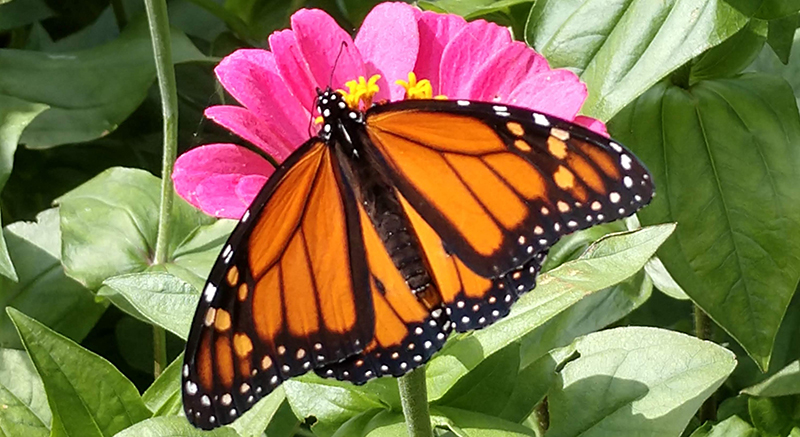
5pm-6pm
All Hands on Deck to Conserve Monarch Butterflies
The Monarch Joint Venture is a network of over 100 organizations across the United States working together to conserve monarch butterflies and their habitats. As a flagship for other pollinators and other conservation benefits, the MJV works to engage people and partners from all backgrounds in habitat conservation, education, and science. Across different land uses from agriculture to rights-of-way to public lands to municipalities, we need all hands on deck to bring monarchs and other pollinators back to sustainable population levels. In this session, we’ll discuss how actions taken within your community are contributing to national monarch conservation efforts. We will cover various ways to get involved in monarch conservation in urban areas, from planting pollinator gardens to participating in community science efforts and other community engagement activities.
Presenter: Wendy Caldwell, Executive Director, Monarch Joint Venture
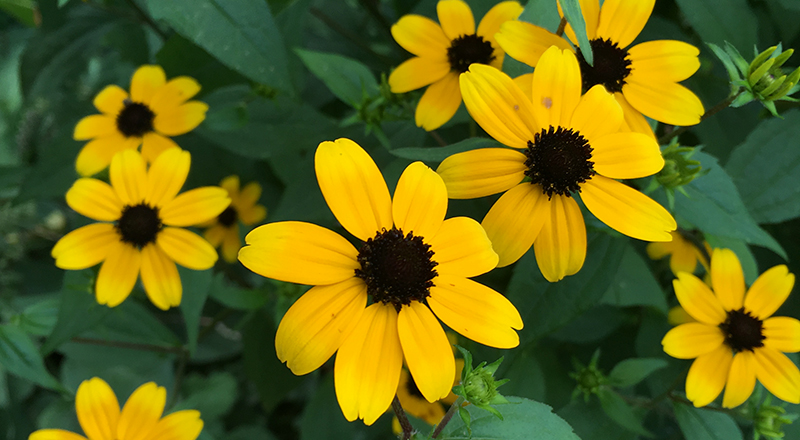
6pm-7pm
Building a Community through Conservation@Home: A Panel on Stewardship and Native Plant Gardening
Conservation@Home is an educational and certification program focused on promoting and celebrating the use of conservation-minded gardening practices. By recognizing community and school gardens that meet our criteria of environmentally sound gardening practices in biodiversity, water conservation, and healthy soils, this program helps create more connected landscapes throughout our communities. Community gardens that certify need to utilize informal/formal education tools to engage members. Panelists will present updates and share photos of their gardens, their experience with Conservation@Home for Communities in Chicago, successes and challenges with community building and gardening during COVID, and their tips for growing native plants. There will also be time for Q & A from the audience.
Facilitated by: Gemini Bhalsod, University of Illinois Extension Horticulture Educator
Panelists: Valerie Kehoe, University of Illinois Extension Program Coordinator, Alex Palmer, Urban Naturalist, and Emily Lambert, Kellogg Garden Club Co-coordinator
Saturday March 19
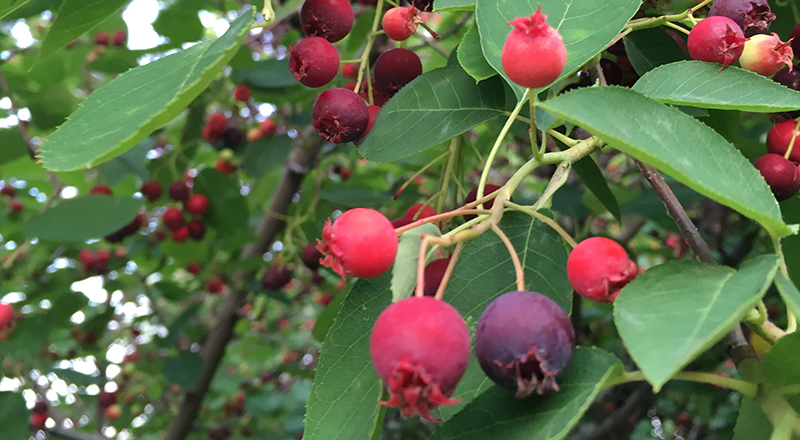
10am-11am
Urban Community Food Forests, Diverse Species Selection & Engagement Opportunities
Learn and share knowledge about food-producing native, hardy species and the sites where they thrive. Showcase different examples of food forests and food forest stewardship. Highlight the importance of diversity in species selection. Explore different forms of engagement to grow volunteerism and increase community garden and green space access and awareness. Opportunity to partner together to plant food-producing shrubs and trees in fall 2022 and beyond!
Presenter:Trinity Pierce, Stewardship Manager, Chicago Region Trees Initiative
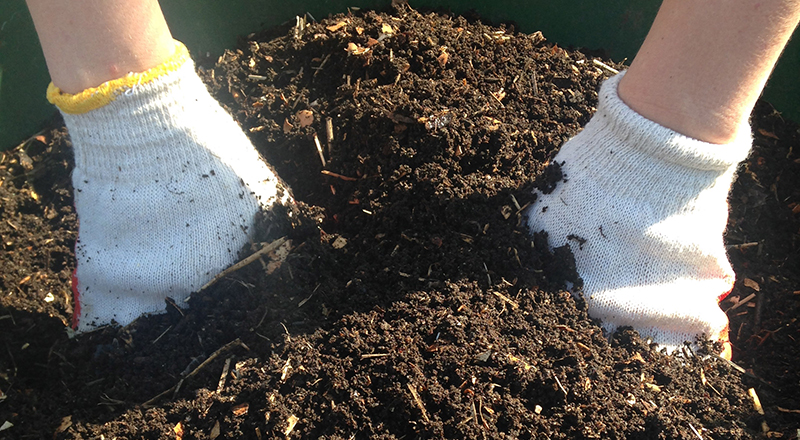
11am-12pm
How Much Lead is There in Chicago’s Soils, and What Can We Do About it?
This presentation will overview recent University of Illinois research to identify soil lead contamination and risk reduction in Chicago. City-wide soil lead maps will be presented, and recommended steps to identify contamination in your garden discussed. How to reduce the risk of plant absorption of lead and human exposure from soil will be overviewed, presenting evidence from experiments conducted using Chicago soils with varying degrees of lead contamination. By providing recent scientific developments on soil lead contamination and urban agriculture risk specifically in Chicago, this session will prepare individuals with practical knowledge for safe gardening.
Presenter:Andrew Margenot, Assistant Professor University of Illinois
Wednesday March 23
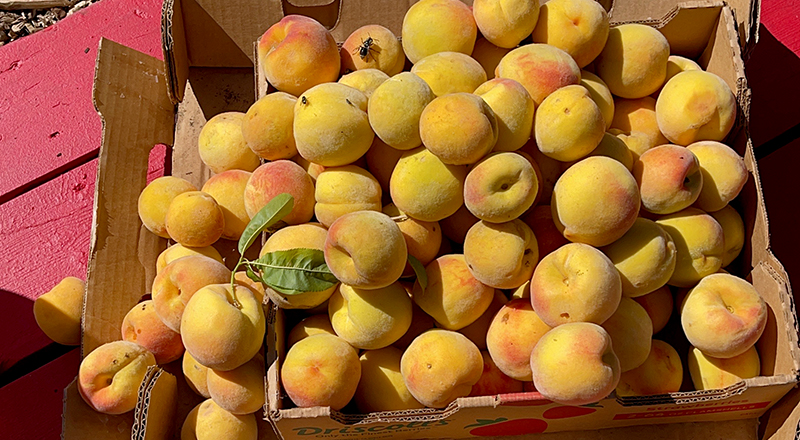
5pm-6pm
Community Food Navigator: Strengthening Community-led Food Solutions
The Community Food Navigator is a community-powered knowledge-sharing project that seeks to make visible the abundance generated and the challenges faced by Black, Brown, and Indigenous growers/producers within the Chicago region food system to reinforce community-driven food systems. For the past year, the project has brought together critical stakeholders to better understand the barriers and opportunities within community-led food systems, especially those experiencing great food inequity through workshops, community engagement, and gatherings. The goal is to develop safe spaces and systems to collect and curate knowledge and connect people to it so they can act effectively.
The Community Food Navigator is an emerging resource for organizing and speaking truth to power. Community-led food solutions leaders continue to shift the dominant food narrative towards a more inclusive and honest depiction of the critical needs and opportunities available for residents, eaters, and organizers experiencing food inequity. During this session, the Community Food Navigator will introduce the project’s goals and objectives, focus areas, tools in development, and participatory way of working.
Presenters: Bahati Aimee, Project Manager/Community Steward, Deepa Gupta, Project Director, and Angela Taylor, Wellness Coordinator for Garfield Park Community Council
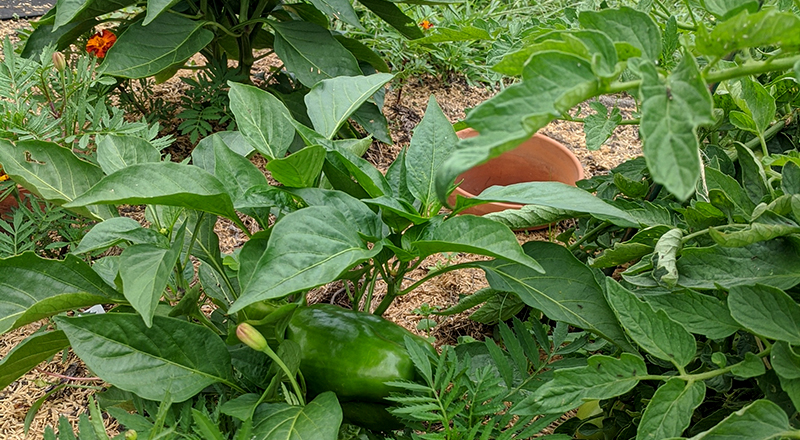
6pm-7pm
Aliarse con la naturaleza para cultivar un jardín floreciente (presented in Spanish)
Mediante ejemplos de entreplantar y métodos naturales para controlar plagas empleados en el Jardín para donaciones de Garfield Park Conservatory Alliance, esta presentación en PowerPoint repasa técnicas sencillas y rentables para cultivar un jardín que crece con fuerza mientras respalda a la naturaleza.
Working with Nature to Build a Thriving Garden: Using examples of interplanting and natural pest control applied in the Garfield Park Conservatory Alliance’s Giving Garden, this PowerPoint presentation reviews simple and cost-effective techniques for building a flourishing garden that also supports nature. *This session will be presented in Spanish.
Presenter: Emilia Arellano, Gerente de educación de jardinería urbana, Garfield Park Conservatory Alliance (Urban Gardening Education Manager for the Garfield Park Conservatory Alliance)
Saturday March 26
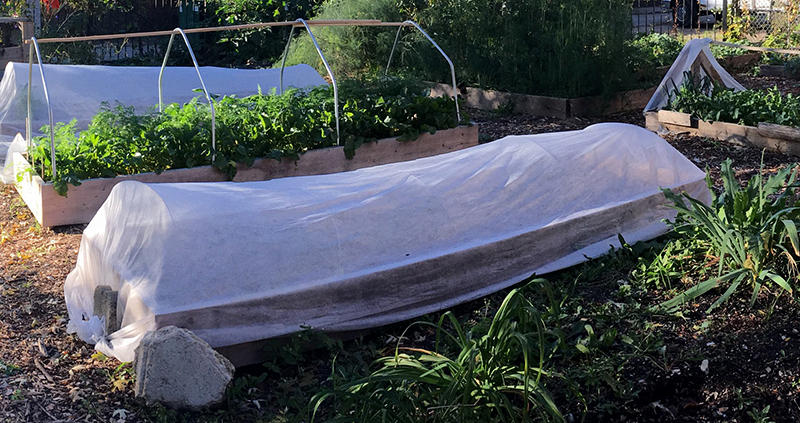
10am-11am
Maximizing Winter Production in Community Gardens
This presentation will cover techniques to increase winter vegetable production, including topics such as building cold frames, crops which can be planted early in the year and harvested over the winter, winter sowing seeds, use of mulch and green manure for insulation, and more. We will share many real examples from our current and completed projects!
Presenters:Michael Repkin, Executive Director, Urban Habitat Chicago and Alex Barnes, Soil Science and Horticulture student, Southern Illinois University
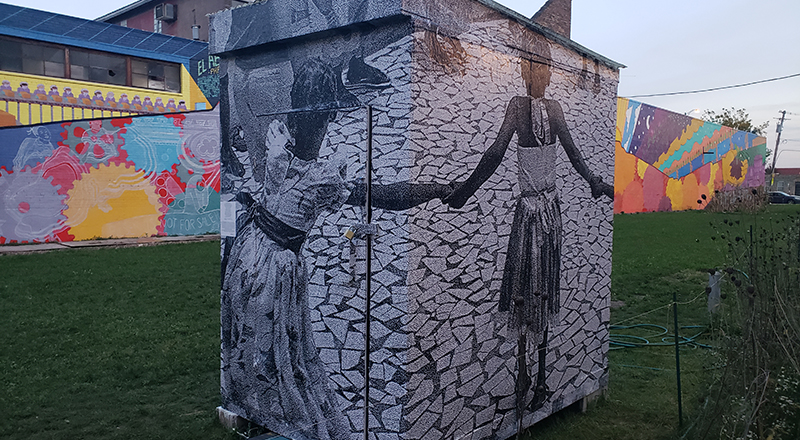
11am-12pm
Greenspace for Whom?
How can we create sustainable spaces on behalf of the community? Join Paula Acevedo-El Paseo Community Garden, Bweza Itaagi Grow Greater Englewood, and Craig Stevenson OpenArch Chicago for a conversation about the challenges of creating and maintaining sustainable community-driven green spaces in an equitable manner.
Presenters: Paula Acevedo, Co-Director, El Paseo Community Garden, Bweza Itaagi, Grow Greater Englewood, and Craig Stevenson, Open Architecture – Chicago
Wednesday March 30
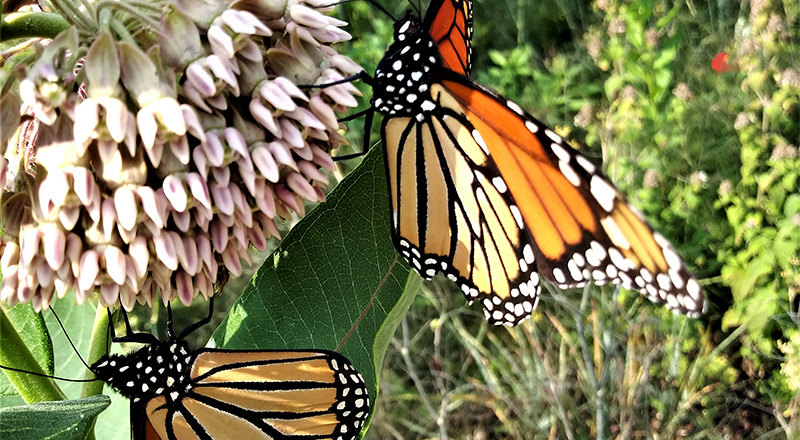
5pm-6pm
Using Community Science to Build Urban Habitat for Monarch Butterflies (Spanish materials provided)
Many people know about the staggering population decline in monarch butterflies and other pollinators. Community science programs can create an important point of engagement for community members from many backgrounds. For the last three years, as part of a Field Museum community science project, amateur scientists throughout the Chicago Region have monitored monarch caterpillars in their urban gardens for the Keller Science Action Center’s Monarch Community Science Project. Since 2020 this project has been available in both English and Spanish at bit.ly/monarchmonitors. As part of the monitoring protocol, participants submitted weekly data surveys. We will share the results of those surveys and what they have taught us about important traits of urban gardens that help monarch caterpillars thrive. This talk will describe key insights we have gained during the course of conducting this community science project and how we hope to engage gardeners in the future to make a case for the valuable role urban gardens play in providing pollinator habitat.
Presenters: Erika Hasle, Conservation Ecologist, Keller Science Action Center and Colleen McVeigh, Urban Conservation Education Specialist, Field Museum
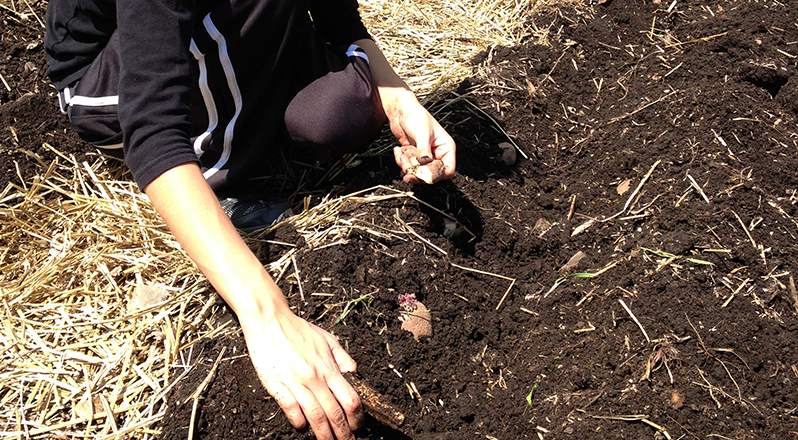
6pm-7pm
Advanced Soil and Media Testing: Options for Community Gardens Using Soil, Pure Compost, and Other Media Blends
Soil testing as a practice has often created confusion and uncertainty when it comes to soil and media management, especially for smaller-scale homeowners and community garden groups. This presentation will cover multiple testing options along a continuum of possibilities. Testing methodologies explored will include traditional soil testing options, saturated media extract/greenhouse media testing, plant tissue, plant petiole sap, and compost testing options. Also, learn about current work being conducted by the University of Illinois Extension to explore alternative testing options for urban growers.
Presenter: Zachary Grant, Cook County Local Food Systems and Small Farms Educator
Meet Our Presenters
CCGA extends heartfelt thanks to these wonderful individuals who have generously shared their time and talents to co-create an outstanding conference!
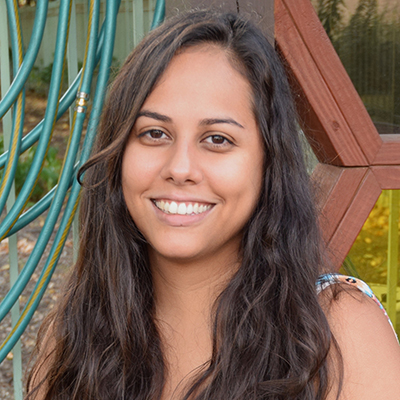
Paula Acevedo, Co-Director, El Paseo Community Garden
Paula and her husband, Antonio, have been the volunteer co-directors of El Paseo Community Garden since 2015. She is responsible for communications, outreach, programming, grant writing, marketing, and anything else that is needed. She enjoys applying her background in Architecture (‘10 UIC Alumna) for place-making and community-driven design. She completed the University of Illinois Extension’s Master Urban Farmer Program in 2016 and the Openland’s Garden Keepers Program in 2015. In the garden, her driving passion is serving the seniors and children through the creation of projects and programming. She hopes to establish the garden as a sustainable community organization to last beyond their leadership. She serves on the City’s River Ecology & Governance Task Force and the Chicago Infrastructure Reuse Network and strives to address the inequities and negative impacts of greenspace and infrastructure improvements, focusing on the proposed 4-mile trail along the BNSF Line and garden. In 2018 she organized a health fair and fall festival, Cosechando Salud, as the co-chair of the Pilsen QOL Health Task Force. The garden has given her a sense of community in Pilsen and has strengthened the connection with her Mexican heritage. When she is not doing garden work, she enjoys craft projects and playtime with her son.
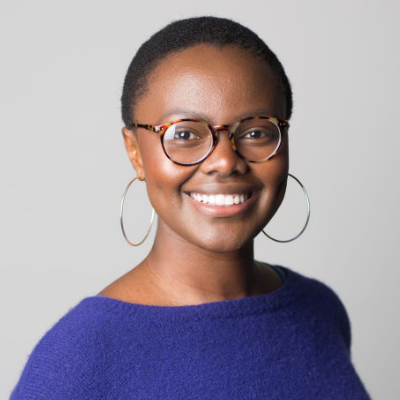
Bahati Aimee, Project Manager/Community Steward, Community Food Navigator
Bahati has worked in Milwaukee, WI, and Chicago, IL as a program manager, grant writer, and community steward. She is also pursuing a master’s degree in Social Sector Leadership and Nonprofit Management from the University of Chicago Crown School of Social Work, Policy, and Practice.
She is a strong communicator and goal-oriented professional working to find meaning in an organization’s mission and establish solutions that are important to the most critical audiences. Bahati approaches collaboration with a focused lens on intercultural environments that promote equity and justice while fostering inclusion in identity, thought, and representation.
Of Rwandan heritage and born in Dar es Salaam, Tanzania – Bahati migrated to Glen Ellyn, IL, with her four siblings and parents in 2005. She enjoys live music, walks to Lake Michigan, and pondering.
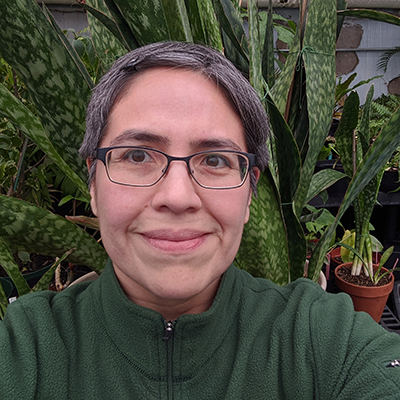
Emilia Arellano, Gerente de educación de jardinería urbana, Garfield Park Conservatory Alliance (Urban Gardening Education Manager for the Garfield Park Conservatory Alliance)
Emilia Arellano es Gerente de educación de jardinería urbana para el Garfield Park Conservatory Alliance. Ofrece talleres de horticultura para adultos y dirige el Jardín para donaciones desde la etapa de cultivación hasta la distribución de las cosechas. Tiene licenciatura en Estudios latinoamericanos y literatura hispana de la Universidad de Chicago y certificados en Agricultura urbana sostenible, Diseño de jardinería comestible e Iniciativa empresarial para comida local de Windy City Harvest.
Emilia Arellano is the Urban Gardening Education Manager for the Garfield Park Conservatory Alliance, where she teaches hands-on horticulture workshops for adults and oversees GPCA’s Giving Garden from planting to harvest and distribution of produce donations. She has a BA in Latin American Studies and Spanish Literature from the University of Chicago and holds certificates from Windy City Harvest in Sustainable Urban Agriculture, Edible Landscape Design and Business & Entrepreneurship for Local Foods.
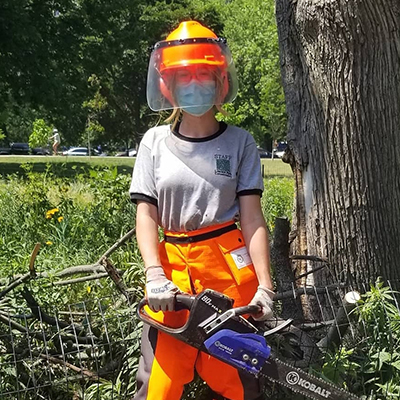
Alex Barnes, Soil Science and Horticulture student, Southern Illinois University
Graduating this May, Alex has experience in urban agriculture, landscape design, agricultural research, arboriculture, conservation, and ecological management. She has notably worked with the Lincoln Park Conservancy, Urban Habitat Chicago, the SIU Plant Pathology and Weed Science Departments, and the Davey Tree Care Company. Growing up in Chicago without a backyard, her unlikely interest in the natural world stemmed from joining UHC as a child and learning about the magical world of wood chips and Jerusalem Artichokes from Mike Repkin, founder of the nonprofit.
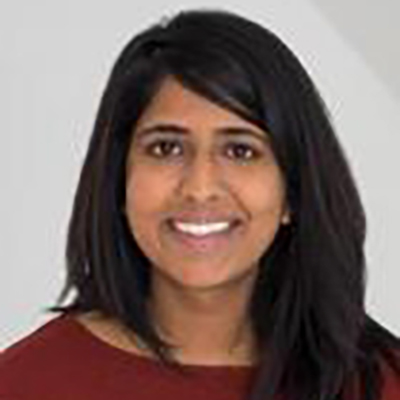
Gemini Bhalsod, University of Illinois Extension Horticulture Educator
Gemini is a Horticulture Educator with Illinois Extension in Cook County. She began her duties providing horticulture education for the public in 2017 and is happy to work with Chicago residents and volunteers. Her goals are to work with both youth and adult community members to facilitate learning about plants, environmental stewardship, and gardening. Gemini holds a Masters’ Degree in Crop and Soil Science and a Bachelors’ Degree in Plant and Environmental Biology with a specialization in Science, Technology, and Environmental Public Policy from Michigan State University.
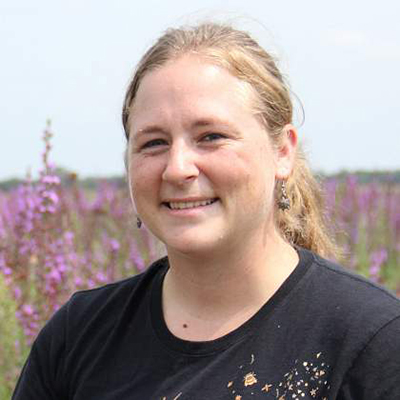
Wendy Caldwell, Executive Director, Monarch Joint Venture
From helping draft the North American Monarch Conservation Plan to coordinating community science, teaching teachers, and supporting monarch research, Wendy has built an extensive background in monarch conservation over the last nearly 15 years. In growing the partnership to over 100 organizations today, Wendy has led the MJV through many transitions as the partnership diversified, staff grew and the organization transitioned from a University program to become a standalone nonprofit. Growing up on a farm in west central Minnesota, Wendy understands the value of hard work and perseverance. While pursuing degrees in environmental science and entomology at the University of Minnesota, she worked as a program coordinator for several initiatives at the University’s Monarch Lab. While she has worked directly on monarch conservation in some capacity since 2007, Wendy also has broader conservation and research experience through positions held with The Nature Conservancy, Ducks Unlimited, and the Illinois Natural History Survey. She enjoys spending time outdoors with her family doing just about anything – sports, hiking, kayaking, gardening, invasive species removal, bird watching, and more! Wendy’s favorite MJV program is Miles for Monarchs, because it combines all of these hobbies – Sign up today!
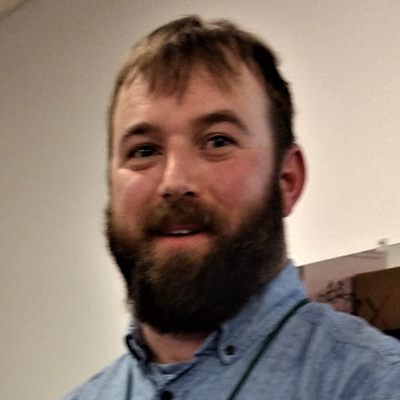
Zachary Grant, Cook County Local Food Systems and Small Farms Educator
Zack is a Local Foods and Small Farms Extension Educator housed in Cook County. He joined Extension in 2015 to focus on urban agriculture production programming for a diverse group of stakeholders. He educates, conducts research, and provides technical assistance in small scale intensive and urban ag food production systems in the Chicagoland region and beyond; primarily delivered through a variety of platforms and experiential training, including the Master Urban Farmer Training Program. He is also currently conducting ongoing demonstration and applied research into urban agriculture production at the quarter acre South Suburban Cook Urban Agriculture demonstration and research site known as SoSuCo. Zack holds a B.S. in Agribusiness-Horticulture from Illinois State University and an M.S in Horticulture from the University of Illinois Urbana-Champaign. He has been involved in small scale intensive farming for over 20 years. Most recently, from 2008-2015 he was the manager and director of the Sustainable Student Farm at the University of Illinois Urbana-Champaign, a working intensive vegetable farm laboratory located on the university fruit research farm. Zack currently resides and owns a 20-acre farm in Kankakee County where he is developing various
small farm enterprises.
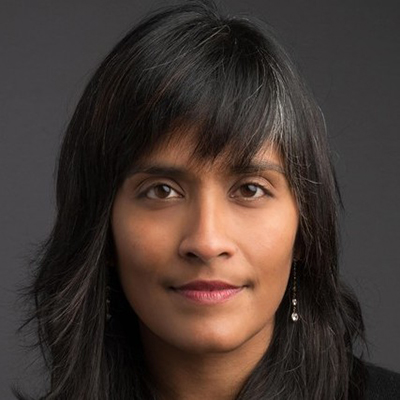
Deepa Gupta, Project Director, Community Food Navigator
Deepa serves as the founding project director for the Community Food Navigator. She began her career in health care as a researcher and consultant focused on hospitals, health systems, domestic and global public health, held strategic and programmatic roles at the MacArthur Foundation as a grantmaker in the arts and nonprofit capacity building, and in community investment strategies in pre-K–12 education for The Boeing Company, where she also stood up a team focused on organizational strategy, performance management, and culture transformation. She started Blue Lotus Advisors in 2019, an independent consultancy to support cross-sector social impact efforts. She serves on the boards of Ingenuity, Inc., the NEA, and Project Y Theatre Company. Deepa studied biology, public policy, decision sciences, human rights and government. She loves to grow tomatillos and dahlias, and resides with her two tweens, partner and mom in Oak Park.
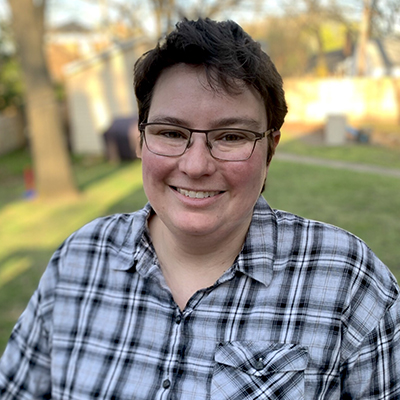
Erika Hasle, Conservation Ecologist, Keller Science Action Center, Field Museum
Erika brings their background in both Ecology and Mapping to their work on urban monarch butterflies for the Field Museum’s Keller Science Action Center. In collaboration with partners such as the US Fish and Wildlife Service, the museum has worked to document the role cities play in providing habitat for monarch butterflies and other pollinators. Erika started their career working on migratory pronghorn antelope in western Wyoming and has always been interested in the way migratory species conservation requires a landscape-level approach and unites diverse landowners. While all of Erika’s formal training is in ecology and mapping, after 10 years with the Keller Science Action Center they become convinced of the critical role social science plays in successful conservation.
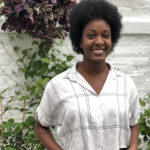
Nyabweza “Bweza” Itaagi, Sustainable Program Steward for Grow Greater Englewood, Englewood Village Farmers, Urban Stewards Action Network, Sistas in the Village
Bweza is an urban farmer, food justice advocate and horticulturist. Bweza moved to Chicago from Denver in 2015 to pursue a master’s degree in Sustainable Urban Development at DePaul University. In both Denver and Chicago, she has worked with a range of organizations focused on urban agriculture, community empowerment and land sovereignty. Upon completing her master’s degree, she joined the Grow Greater Englewood team as the Sustainable Program Steward. In her role she co-convenes the Urban Stewards Action Network (USAN) and supports the development of the Englewood Nature Trail and Englewood Village Plaza. She is passionate about bringing together Black and Brown communities to build solidarity and resilience.
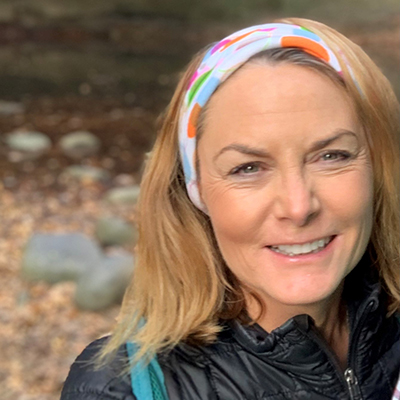
Valerie Kehoe, University of Illinois Extension Program Coordinator
Val is a Program Coordinator with Natural Resources, Environment and Energy with University of Illinois Extension serving Cook County. Her programs have included School and Community Gardens and now comprise initiatives that Illinois Extension and the Forest Preserves of Cook County collaborate on, namely the Conservation@Home and the Master Naturalist Programs. Matters close to her heart are community, sustainable and environmentally friendly practices, as well as growing food for good health and nutrition. Through her current position and community volunteerism, Val aims to pass on her passion for plants and the natural world. She is a horticulturist and certified arborist with 25+ years of experience in the green industry.
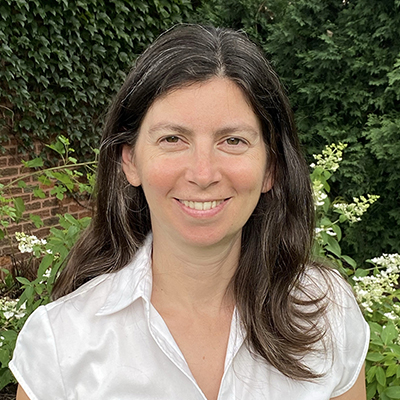
Emily Lambert, Kellogg Garden Club Co-coordinator
Emily is a Master Gardener in Chicago. In 2015, when her son was in kindergarten, she and other parents talked about starting a school garden at Kellogg Elementary School. The school now has multiple raised beds, a 3,200 square foot pollinator garden, two beehives, an outdoor classroom, and two CCGA Excellence in Gardening Awards. Emily co-leads an after-school garden club every Tuesday afternoon. When not gardening or talking about it, she edits a magazine about business research.
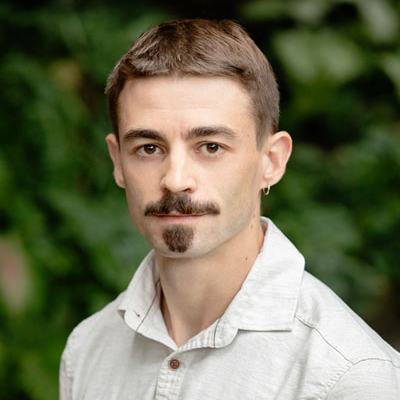
Andrew Margenot, Assistant Professor University of Illinois
Dr. Margenot addresses the literal foundation of all cropping systems: soils. He is advancing how we monitor and manage soils as natural capital. His research team evaluates how human activities can enhance or compromise soil services to human societies, with an emphasis on food security from urban and rural agro-ecosystems in the U.S. Midwest and East Africa.
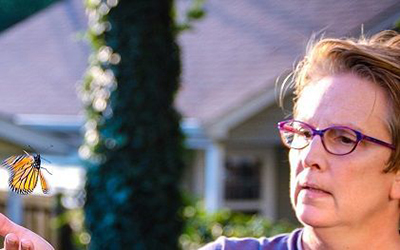
Colleen McVeigh, Urban Conservation Education Specialist, Field Museum
Colleen leads Youth Conservation Action’s instructional capacity building in environmental education through the implementation of professional development workshops and instructional coaching. She ensures that YCA trainings are based on current research and best practices. She is a National Board certified teacher with more than 25 years of experience working with youth, and she holds a BA in History from the Lawrence University and a MA in Curriculum and Instruction with a focus on literacy acquisition from DePaul University. Colleen lives in Chicago, IL and has worked as a teacher and as an independent consultant providing professional development for schools in the Chicago Public School system. Colleen worked in the Chicago Public Schools for 20 years in various classroom settings, including dual language and transitional bilingual. In addition, Colleen has done teaching, coaching and consulting work for DePaul University, University of Chicago, and the Associated Colleges of the Midwest as well as several other private and public organizations. Colleen is bilingual Spanish/English.
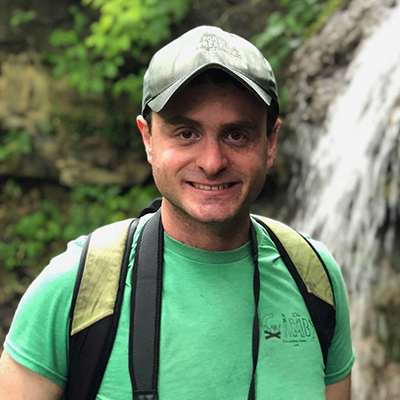
Alex Palmer, Urban Naturalist
Alex is an urban naturalist and community conservation professional with over 15 years of professional experience developing nature education programming and stewardship projects. Raised on the Portage Escarpment, a part of the Western Allegheny Plateau, he grew up surrounded by urban stream valleys that would tumble down into the plain of Lake Erie on the east side of Cleveland, Ohio. His infatuation with urban ecology continues to this day, where he spends much time working and playing where the woods end and the neighborhoods begin. Alex is a Certified Interpretive Guide and a Certified Arborist, and he is currently pursuing his Master’s degree in Biology from Miami University’s Advanced Inquiry Program in conjunction with the Chicago Zoological Society. Alex has been involved with building support for the preservation of Taylor Street Farms, a Conservation@Home certified community garden located in Chicago’s near-west side.
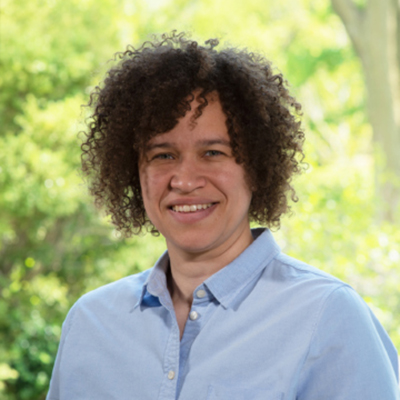
Trinity Pierce, Stewardship Manager, Chicago Region Trees Initiative
As the Stewardship Manager for the Chicago Region Trees Initiative, Trinity collaborates with communities to foster awareness of the importance and benefits of trees through hands-on outreach. This outreach in turn fosters action through tree plantings and ongoing tree maintenance in order to build a healthier, more diverse urban forest. Trinity holds a masters degree in Landscape Architecture from the University of Michigan and has a background in history, ecological restoration, and urban green space reconciliation.
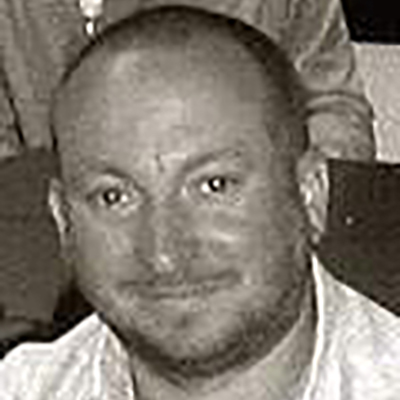
Michael Repkin, Executive Director, Urban Habitat Chicago
Michael is an ecological designer specializing in biological resource recovery and sustainable food production. He led young students in projects that focus on human life support systems and technologies for five years in Chicago and is currently working with students to develop skills for transforming a damaged world. While serving in the Army, his assignments included laboratory positions at Walter Reed Army Medical Center and the Armed Forces Institute of Pathology. Mr. Repkin is also President of Repkin Biosystems, Inc., a company “dedicated to enabling customers with the tools that are needed to provide human life support utilizing biological processes, and methods that are compatible with living systems.” He is also one of the founders of Urban Habitat Chicago and served for 5 years as President of the Board. Mr. Repkin invented the method of Building Integrated Food Production (BIFP) and Roof Farm used on several projects, including UHC’s Rooftop Victory Garden at True Nature Foods; others developments include Living Panels, Biological Methods for Removing Heavy Metals from water, URBANROOFFARM, URBANFARMBOX, URBANGREYWELL and Rhizofilter 1.
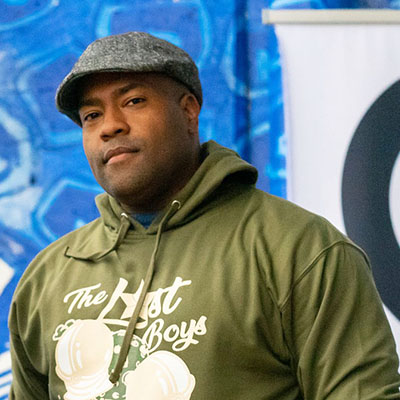
Craig Stevenson, Open Architecture Collaborative – Chicago
Craig is a Chicago native and creative professional passionate about the mind-body-spirit connection and using arts and culture, business, education, leadership development, and design as tools for social change. He is dedicated to building thriving, sustainable communities using creative placemaking and relationship building. Craig has worked in systems design, service design, digital and experiential marketing, augmented reality and loves to operate in the intersection of community healing, storytelling, and spatial design. Along with creative strategy with CRADLE ideas, he continues his advocacy as the Co-Chair of Open Architecture Collaborative – Chicago which practices equitable socially-responsive public interest design. Craig is part of the Under the Grid Collective which is working on Under the Grid, 15 blocks of arts and culture under the CTA Pink Line. Craig is a co-host of the Multicultural Leadership Academy’s “MLA Safe Space Cafe” of the Latino Policy Forum which focuses on leadership, safe space initiatives, policy issues that impact black and brown communities. He has also worked with the Chicago Park District and Chicago Architecture Biennial. Craig was recently recognized by Newcity Design Magazine’s Design 50 2022: The Fifty People Who Shape Chicago in the category of Architecture and the Built Environment for building community capacity and serving as an intermediary between professional practitioners and systemically marginalized communities.
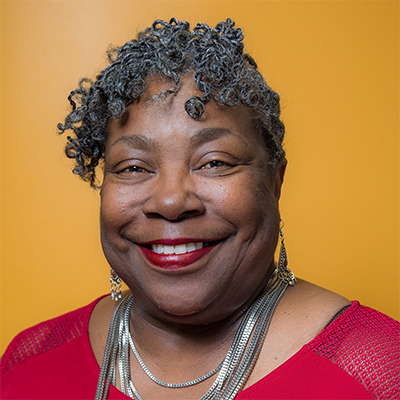
Angela Taylor, Wellness Coordinator, Garfield Park Community Council (GPCC)
Angela is one of the founders of the Garfield Park Garden Network and Garfield Park Neighborhood Market and also manages many other wellness events and activities. In addition to her work with GPCC, Angela is a board member of Chicago Community Gardeners Association, Advocates for Urban Agriculture, and Working Bikes. She also serves on the Community Advisory Council for The Hatchery, and the Leadership and Community Advisory Councils for West Side United. She is a lifelong resident of the community and with her family, she manages the award-winning Fulton Street Vegetable and Flower Garden.
Support
If you have any questions or need help, please email the communications team and we’ll respond promptly.
If you haven’t already, you can log in to the conference hub on Zoom Events, browse the sessions, and plan your viewing schedule. We look forward to learning with you at our 9th Annual Gardeners Conference!
Please read below if you need assistance with joining the conference on Zoom Events:
- Before you join the conference, please make sure you are using the latest version of Zoom.
- You must use the same email address that you registered with. Have your Zoom password handy for signing in.
- If you’re not a frequent Zoom user, we highly recommend signing in to Zoom and visiting the Conference Lobby prior to the first session to familiarize yourself with the platform.
- You may sign into the conference hub on Zoom Events.
- You can also access the conference from either the Zoom Events Order Confirmation email you received when you registered or the Reminder for Zoom Events that was on March 15. The top of the email should look like the image below.
- Click on either View Ticket or View Event and you’ll be redirected to sign in to Zoom Events in a web browser.
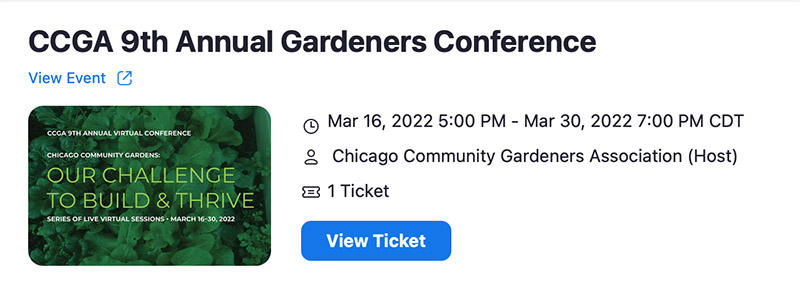
For desktop/laptop (recommended):
- Once signed in, you’ll see your ticket and/or a blue Join Lobby button. This will launch the Zoom desktop app. If you see a pop-up window, please click Allow or Open Zoom US. The conference Lobby will appear in the Zoom app.
- The conference Lobby has 3 sections: Home, Sessions, and Itinerary. Browse the sessions and bookmark or add them to your calendar. You can also use the Itinerary function to create a schedule directly in the Lobby.
- The active session(s) will show a blue Join button. Click to join the session!
For mobile/tablet (limited functionality):
- Once signed in via a web browser, you’ll see your ticket and/or a blue Joinbutton.
- You’ll be able to join the event once it has started. Otherwise, you will see a blue View Event button.
- Once the event has started, tap Join and you will see the conference hub and sessions. Tap Join Session to join the live session.
- This will prompt you to open or will launch the Zoom mobile app and you’ll be able to view and participate in the session through the app.
A few additional things to keep in mind:
- When you join a session, there may be a waiting room enabled. In this case, we will admit everyone at the session start time.
- At the start of each session, we will ask attendees to double check that they have muted their microphone and turned off their camera.
- Each session will be recorded.
- At this time, joining via phone is NOT supported in Zoom Events.
- Session recordings will be available shortly after the event ends.
If you’re having problems joining on desktop or mobile:
Please see this Zoom support article: https://support.zoom.us/hc/en-us/articles/4404105243405-Joining-Zoom-Events
If you still need help, you can contact the communications team:

